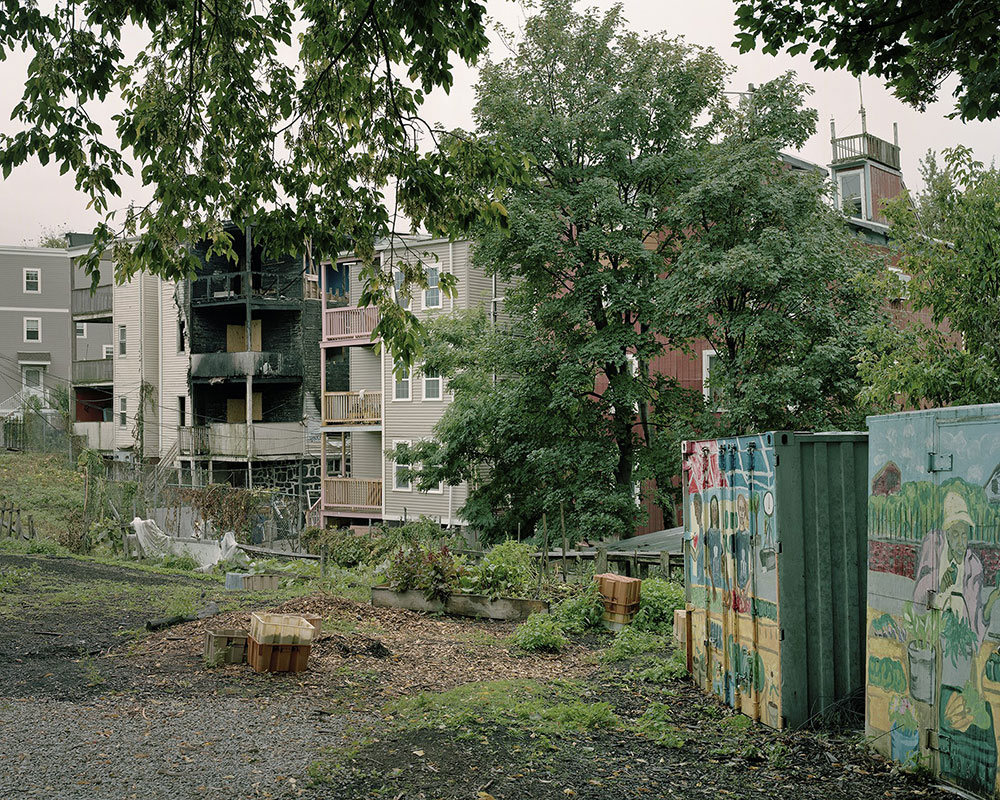Common Good
The community defines the “common good”

© Richard Wasserman, 2013
Unlike other eminent domain sites where outsiders or government agencies define the “common good” in the eminent domain process, in Dudley the community developed its own definition of the “common good” in its 1993 “Declaration of Community Rights.” Developed by residents themselves, the Declaration provides guidance for the community as new investments take place and community priorities are discussed.
Declaration of Community Rights
We – the youth, adults, seniors of African, Latin American, Caribbean, Native American, Asian and European ancestry – are the Dudley community. Nine years ago (1993), we were Boston’s dumping ground and forgotten neighborhood. Today, we are on the rise! We are reclaiming our dignity, rebuilding housing and reknitting the fabric of our communities. Tomorrow, we realize our vision of a vibrant, culturally diverse neighborhood, where everyone is valued for their talents and contribution to the larger community. We, the residents of the Dudley area, dedicate and declare ourselves to the following:
- We have the right to shape the development of all plans, programs and policies likely to affect the quality of our lives as neighborhood residents.
- We have the right to quality, affordable health care that is both accessible to all neighborhood residents and culturally sensitive.
- We have the right to control the development of neighborhood land in ways which insure adequate open space for parks, gardens, tot lots and a range of recreational uses.
- We have the right to live in a hazard-free environment that promotes the health and safety of our families.
- We have the right to celebrate the vibrant cultural diversity of the neighborhood through all artistic forms of expression.
- We have the right to education and training that will encourage our children, youth, adults and elders to meet their maximum potentials.
- We have the right to share in the jobs and prosperity created by economic development initiatives in metro-Boston generally, and in the neighborhood specifically.
- We have the right to quality and affordable housing in the neighborhood as both tenants and homeowners.
- We have the right to quality and affordable child care responsive to the distinct needs of the child and family as well as available in a home or center-based setting.
- We have the right to safe and accessible public transportation serving the neighborhood.
- We have the right to enjoy quality goods and services, made available through an active, neighborhood-based commercial district.
- We have the right to enjoy full spiritual and religious life in appropriate places of worship.
- We have the right to safety and security in our homes and in our neighborhoods.

